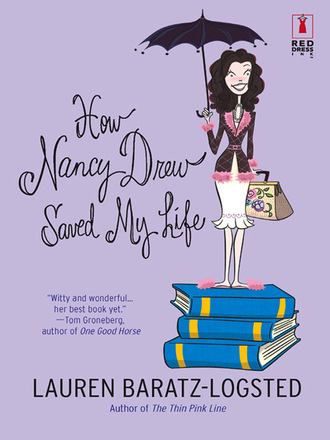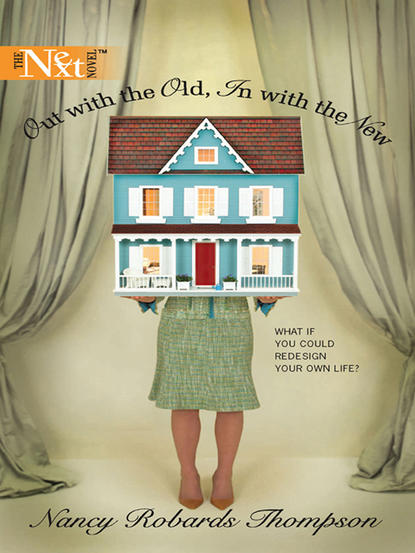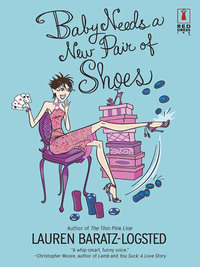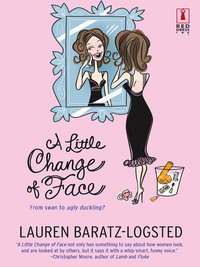
Полная версия
How Nancy Drew Saved My Life
It said that Nancy Drew was an attractive girl of eighteen, that she was driving along a country road in her new, dark blue convertible and that she had just delivered some legal papers for her father.
Apparently, her dad had given her the car as a birthday present and she thought it was fun helping him in his work.
It went on to say that her father was Carson Drew, a well-known lawyer in River Heights, and that he frequently discussed puzzling aspects of cases with his blond blue-eyed daughter. Smug, I thought, Nancy was pleased her father relied on her intuition.
Nancy was nothing like me. She was five years younger, for one thing. She also drove, a convertible no less; I couldn’t even drive a donkey cart, had never even bothered getting my license. Who needed a car if you’d lived all your life in the city? It would only be a nuisance here, even a convertible in the summer. Besides, I was kind of terrified of driving, would rather poke a needle through my own eye than be responsible for powering a vehicle.
Nancy also had a father who trusted her to help him with things, while all I had was Aunt Bea to trust that I would fuck everything up and a father in Africa whom I rarely saw. I seemed to remember Nancy being motherless, like me, but somehow I doubted we’d lost our mothers in the same fashion.
Finally, there was that whole thing about her being blond and blue-eyed—wasn’t she supposed to be famously titian-haired? I seemed to remember that, too, and remembered thinking the word sounded glamorous but then thinking it icky when I’d learned the Webster’s definition of it was “of a brownish-orange color,” which hardly sounded attractive—which was in direct opposition to my own curly black hair and brick-brown eyes.
I hated her already.
The bitch probably didn’t even have any cheesy cellulite on the backs of her thighs. It would be nice to be able to say I was too young to worry about cellulite, but genetics will out and mine had outed itself post-puberty in an unpleasant way. Oh, nothing too major, just enough to make the idea of appearing on a beach in a bathing suit somewhat less than confidence-building.
Feeling more disgusted than I’d expected to feel, I put aside #1 and picked up #56, the one with the pagoda on the cover, and turned to page one again.
Nancy was discussing some drink called Pearl Powder with friends Bess and George.
I remembered being confused by George when I was a little girl. Obviously, George was a boy’s name, and yet whenever there were pictures of the girls with Nancy’s boyfriend Ned in the book, I’d always think Ned was George and wonder where Ned was and who was that other girl? It was years before I sorted George’s androgyny out.
I grumbled. I didn’t have any friends.
Before Buster, I’d had a few friends, at least people to do things with and people to talk to when times got rough. But after I succumbed to Buster’s charms, I committed the other cardinal sin that girls make: I made the man not just the center of the universe, but the entire universe, and I let everyone else drift off to different galaxies.
So maybe I messed up that metaphor, but so what, because in that moment, I realized I no longer had any friends, not like Nancy did, not even a friend of not-readily-determinable sexual orientation like George.
You could say I felt sorry for myself. I knew my own choices and actions had led me to where I was, but I still felt sorry for myself.
If things had somehow worked out with Buster—not that I’d ever been able to define for myself, even before the bust-up, what would constitute things “working out” with a married man plus two kids—would I still be feeling sorry for myself at this point?
Probably, I figured. Because I would have still reached that critical state in a relationship where you realize you’ve let all your friendships die and all you have left is the one relationship.
Not that I’d had any other experience with relationships.
Come to think of it, I’d had limited experience with friendships, too.
I glanced down that first page of #56 and saw that—omigod!—Nancy was still eighteen! How was such a thing possible? I was pretty sure that even Sherlock Holmes, over the course of his many adventures, had aged a few years. So how had Nancy managed to age not one year over the course of fifty-six mysteries? I quickly did the math.
Okay, I went to find my calculator.
Figuring it wasn’t a leap year—because what are the odds? Something like one in four?—I did the division. Let’s see…365 divided by 56 is…6.5178571. 6.5178571??? This…teenager was solving mysteries at the rate of one every six and a half days? What kind of a girl was she? Oh, man, was I sooo not her.
Talk about an overachiever.
But then, after I was annoyed for a really long time, I started to think, How cool!
Imagine having one incredibly long year, the most stretched-out year imaginable, with enough time to get right everything a person needed to get right. What would I do with such a year? I couldn’t change the past. But maybe in changing my present, I could change my future?
I looked at the calendar on the back of my bedroom door, kittens in Greece, the sole present I’d received from Aunt Bea for my birthday: it was April 26. So, calculator time again, I had already lost 116 days so far that year—it wasn’t a leap year—meaning I’d already blown the chance to solve 17.846153 mysteries. But hey, there were still 249 days left, so there was still the opportunity for me to solve the remaining 38.153847 mysteries.
Whatever they were.
If only I could get up to speed real fast.
Actually, I was beginning to think that even I should be able to solve .153847 mysteries. It was the 38 part, I suspected, that would be the problem.
For the remainder of the two months until it was time for me to get on the plane to Iceland, I could read a book a day of Nancy Drew, leaving me five days at the end for shopping, packing and biting my nails to the quick.
Except for the day I went for the job interview, of course. Even someone desperate for a nanny who was willing to leave her life and go to Iceland wasn’t going to hire that nanny without first meeting her in person…. No matter what kind of wonderful things Ambassador Buster had said about her.
chapter 3
Then came the call. It was by one Mrs. Fairly, definitely a Mrs. who would never allow herself to be addressed as Ms., who requested I come to her master’s—master’s?—Park Avenue home for an interview. Clearly, this was a step up from Ambassador Buster Keating’s home, where I’d originally been interviewed and hired by his disinterested wife. I was now to be hired by a minion, which I figured meant I was moving up in the world.
Trying to answer that ever-popular euphonious question, WWNDD—What Would Nancy Drew Do?—I searched my practical wardrobe for the perfect persuasive costume to wear. Rejecting the casual allure of slacks and the confidence-inducing appeal of a dressy dress, I at last settled on a sensible plaid skirt and short-sleeved turtleneck I found in the back of my closet. I had no idea where these garments came from, could not for the life of me remember purchasing them, but when I looked in the mirror I saw they were doing the trick. Adding my mother’s pearls and unassuming flats to the picture, even though the flats gave me none of the height I so badly needed, I was ready to roll.
But first I had to run the gauntlet of Aunt Bea’s children.
“You look boring,” said Joe, the oldest at fifteen. “I’d never date you.”
“That’s a hideous combination,” said Elena, thirteen.
“Who would ever wear pearls with plaid?” sniffed Georgia, nine.
I was tempted to tell her that I was pretty damn sure Nancy Drew would wear plaid and pearls on an interview—hell, Nancy, who always wore gloves when she went out, but for entirely different reasons than why I ever did, would have undoubtedly worn gloves, too—but I didn’t want her to think I was crazier than she already clearly thought me. Plus, I still awaited Aunt Bea’s verdict.
She looked at me long.
“I…like it,” she finally said.
And that scared the shit out of me more than anything that had gone before.
When someone whose taste you don’t respect thinks that whatever you are wearing is the bee’s knees, chances are you’re making a fashion faux pas from which your image is unlikely to recover.
I grabbed a leather bag, black with brown suede trim, that was more satchel than purse, and was gone.
The living room I was led into by an actual liveried servant was big enough to fit Aunt Bea’s entire first floor into and it was quickly obvious that someone around here had an overly enthusiastic appetite for French furniture. Not that I’m particularly heavy, carrying no more extra baggage than the obligatory all-American extra ten, but when the servant indicated a Louis-something chair to me, and I felt the skinny legs wobble back and forth on the slippery marble floor beneath me, I found myself wishing for something more sturdy.
Mrs. Fairly turned out to be as old as Aunt Bea looked, with a staid black dress and her own pearls on—ha! Thank you, Nancy Drew!—that somehow reflected back the glow of her bluish white hair. She also carried an extra twenty pounds to my ten and was shorter than me, which is always a shocker.
I’ve spent my life thinking of my height more in terms of the technical—“I am a short person”—rather than in practice, because I’ve always felt taller and indeed all my life have been told, except by my family, that I don’t look that short, and that I have a much taller personality, whatever that means; even people who remember the commercials I made as a child, upon meeting me, never fail to comment, “You didn’t look like a short child!” Again, whatever that means.
“What religion are you?” she asked.
I would have guessed it was against some kind of law to ask a prospective employee about religious affiliation, unless of course you were hiring a bishop or a rabbi, but questioning the legality of her business ethics right off the bat hardly seemed the best tactic to secure me the position I wanted.
“Jewish,” I said.
“I see,” she said.
I wondered what she was seeing, endeavored to at least look like I was waiting patiently for some kind of elucidation.
“It’s just that,” she hesitated, “Iceland is such a…not-Jewish place.”
“Is that a problem?” I asked, wanting to kick myself even as the words were leaving my stupid, stupid mouth. Did I want the job or didn’t I? Why raise the issue, why say the word problem for her? Let her do it if she was going to do it.
“Oh, no, no,” she pooh-poohed. “I mean, after all, with that hair alone, not to mention the lack of height—” she eyed me up and down in no time at all “—you’re bound to stand out.”
This from a woman who was shorter than me and had blue hair?
But I kept my thoughts to myself.
“Challenges can be good,” I said, “for me and for Iceland.”
She smiled for the first time.
“You’re a little plucky,” she said, “aren’t you? I kind of like that.”
“Are Icelanders prejudiced?” I couldn’t stop myself from asking.
“Not at all,” she said. “They’re just all tall. And blond. And not Jewish.”
Until she’d brought up the subject of my religion, it hadn’t occurred to me to wonder that it might be strange to be a short, dark-haired Jew in Iceland. Maybe I hadn’t thought about the last so much because Judaism had never been a salient feature of my existence and was more like one of the less prominent lines on my résumé, like my high-school job at Dunkin’ Donuts.
In fact, it wasn’t until I was eight that I even learned I was Jewish and even then it was by accident.
Aunt Bea had just given birth to Joe, her first, and they were getting ready to baptize him. I was curious about the process, having never seen one before.
“Why would you know anything about it?” Aunt Bea had asked me in a rare unguarded moment. “Your mother was Jewish.”
I had known so little about my mother, other than that she’d died while having me. Women aren’t supposed to die in childbirth anymore, all the books tell you that it just doesn’t happen, but sometimes it does.
A decade before, I’d been a fan of the TV program E.R., until one night when I saw an episode called “Love’s Labors Lost.” It was about a woman who goes into the hospital to have a baby and everything goes wrong, one thing after another, until the woman dies. It was like they were playing the story of my birth, and after that I could never watch the show again, had no interest in any medical show or movie of any sort.
After my mother’s death at the moment of my birth, my father raised me until I was three. It was at that point that the constant reminder I represented to him of my mother, whom he had loved dearly, became too much for him. I was sent to live with Aunt Bea and Uncle Thornton, while my dad departed for Africa where he pursued work as an archaeologist. He wrote often, and came to visit a couple of times a year, his visits always initially having the forced formal feel of royalty calling. I cherished those visits, kept what warm moments transpired during them locked in a special treasure chest in my heart. But it always seemed that no sooner had we got used to one another once more, he was off again.
Uncle Thornton was kind to me in the ways that Aunt Bea was not, but when he died not long after their third child was born, I was left without an ally in the household. Aunt Bea was of a mind that I needed to earn my way there and the form that earning took was in helping to care for her three spoiled children. The upside was that in caring for them, I learned a trade that would help me care for the children of others, like now.
Still, finding out I was Jewish had come as a surprise, not necessarily an unpleasant one, but a surprise nonetheless. Once I knew, I clung to it as the only remaining legacy, other than the pearls, of my mother. Aunt Bea tried to shrug it off as some kind of obstinate whim I had taken into my head, and there was no one to teach me about my religion, but I clung to it all the same. I might not practice it very much, might not know enough about it, but it was a part of who I was, where I came from, who I’d always be.
Mrs. Fairly wanted to know some more about my experience with children, so I told her about my years helping Aunt Bea raise her three, neglecting to mention the parts about those three abusing me in every way their evil little minds could come up with.
At least, I thought, there had never been any red bedroom for them to lock me in.
“Children can be a wonderful challenge,” I told Mrs. Fairly. “I like challenges. I like wonder, too.”
If she thought that last was odder than something most people would say, she didn’t let on.
“Would you like to meet Annette now?” she inquired.
I looked at her questioningly.
“You did realize,” she said, “when you applied for a nanny position, that you’d be caring for a child…didn’t you?”
Apparently, she had her own plucky side.
“Annette,” she told me, “is the little girl you’d be caring for.”
When I nodded my consent, Mrs. Fairly summoned the liveried servant who in turn summoned an older woman in a tweed skirt and sweater set who entered the room holding the hand of a small girl, about age six, who was dressed in an old-fashioned pink dress that had puff sleeves with a white apron on it. The girl had dark curls, not so different from my own, and a spark of mischief in her dark eyes that would not be quenched, I suspected, no matter how serious those around her might get.
Annette quickly curtsied when she was immediately before me and tilted her head to one side as we were introduced by Mrs. Fairly.
“What kinds of things will you teach me?” she asked. “Are you good at geography? Math?”
I wondered how the little imp had read my mind so quickly and seen into my shortcomings.
I shook my head slowly, twice.
“I’m afraid that neither of those things is my strong point,” I confessed.
“Good,” she laughed, “since I am not good at them either and I would hate to have a nanny who was going on all the time about places and numbers. But…what are you good at?”
“Words,” I said. “I’m very good with words, language. Anything to do with reading, writing, I’m your girl.”
She laughed again, apparently delighted at the idea of me being her girl rather than the other way around.
I was puzzled though. Even though Mrs. Fairly had neglected to introduce me to the woman accompanying Annette, I knew instinctively this woman was not the child’s mother and must in fact be her nanny. She was too stereotypically caretaking to be anything else.
Apparently, though, I was in a houseful of mind readers, for Mrs. Fairly said next, “Sylvia has no wish to go to Iceland. That is why the master has had me look for a replacement.”
I did so wish she would stop referring to him as “the master.” Give her a humpback, crooked teeth, make her a man and put her in a castle, change her accent, too, and I’d swear I was sitting there with Dr. Frankenstein’s assistant.
“That will be all, Sylvia,” Mrs. Fairly said, indicating they could go.
I was curious: Why wouldn’t Mrs. Fairly, who seemed to be an uber competent woman, take care of Annette in Iceland? Was she perhaps staying behind in New York?
“Oh, no,” Mrs. Fairly answered after I voiced my questions aloud. “My job is to see to the general running of the household. I couldn’t possibly also be expected to be solely responsible for a small child myself. What sort of person could do both jobs at once?”
It was on the tip of my tongue to answer “a lot of mothers,” for I had read of such creatures in books and seen the role acted sometimes in that way on television and in movies, but I doubted snippiness would win me the job; pluckiness, perhaps, but not snippiness.
“I do hope you are chosen to come to Iceland with us,” Annette said, turning at the door. “We could have a lot of fun together.”
I somehow doubted that Mrs. Fairly’s greatest concern was that the new nanny be “fun.” Indeed, I somehow suspected that such a feature might prove a detriment in her eyes, for hadn’t she presumably hired the stern Sylvia? But at least she must be able to tell, obviously, that Annette and I would get along, which must surely be some kind of selling point when one is entrusting a precious young charge into the hands of a new nanny.
Mrs. Fairly studied me curiously once the other two were gone.
“Don’t you have any questions for me?” she asked. “Usually, it is normal for prospective employees to have some questions.”
Shit! I wanted to appear normal, but what to ask, what to ask…
I was sure if Nancy Drew were sitting in this wobbly chair, she’d know exactly what to ask. Of course, if she were sitting in this chair, I doubted it would have the audacity to wobble under her.
Nancy Drew would probably ask sensible questions: what her responsibilities would be, what was expected of her. She’d probably leave off asking to last—but she would definitely ask, being a practical girl and the daughter of a lawyer—about things like benefits, if they covered dental. Of course, if an injured carrier pigeon suddenly flew into the room, Nancy would undoubtedly wire the International Federation of American Homing Pigeon Fanciers in order to give them the number stamped on the bird’s leg ring since, as she’d pointed out in The Password to Larkspur Lane (#10), all homing pigeons are registered by number so their owners can be traced. Then she’d feed the bird water with an eyedropper, fill a box with wild bird-seed and notify all and sundry that carrier pigeons had been clocked at a mile a minute from Mexico City to New York. How did she know all these things? Was it just good instincts?
“Who is my employer and what does he do?” I blurted.
“His name is Edgar Rawlings…” She smiled, as though I should know whom she was talking about. “He’s to be the new United States ambassador to Iceland.”
Crap! I thought. Not another ambassador!
What were the odds? Then I remembered that the first time I’d found myself in the employ of an ambassador, an agency had placed me there. This time, on the other hand, I’d found the ad in the paper all on my own. I thought about the oddness of the coincidence, reeled at the notion of putting myself through this déjà vu. It was like the universe was playing a perverse trick on me, forcing me to repeat parts of my past. I supposed I could always turn down the position, provided it was even offered to me. But I had really liked Annette…
Mrs. Fairly misread the cause of my dismay.
“Don’t all countries have an ambassador? Surely,” she said, “even Iceland needs an ambassador, doesn’t it?”
She was asking me? I didn’t even know anything about Iceland. I mean, I knew that it was supposed to be completely dark there part of the year, completely light another part, but I had no idea what part I’d be flying into or if I’d indeed be flying into anything, if I indeed had landed the job.
“And is there a Mrs. Ambassador Rawlings?” I asked.
“Oh,” she said sternly, “you don’t need to know about her.”
Well, that sounded ominous.
“Now, then.” She leaned forward in her chair. “Why don’t you tell me why it was you left your last position.”
Конец ознакомительного фрагмента.
Текст предоставлен ООО «ЛитРес».
Прочитайте эту книгу целиком, купив полную легальную версию на ЛитРес.
Безопасно оплатить книгу можно банковской картой Visa, MasterCard, Maestro, со счета мобильного телефона, с платежного терминала, в салоне МТС или Связной, через PayPal, WebMoney, Яндекс.Деньги, QIWI Кошелек, бонусными картами или другим удобным Вам способом.






